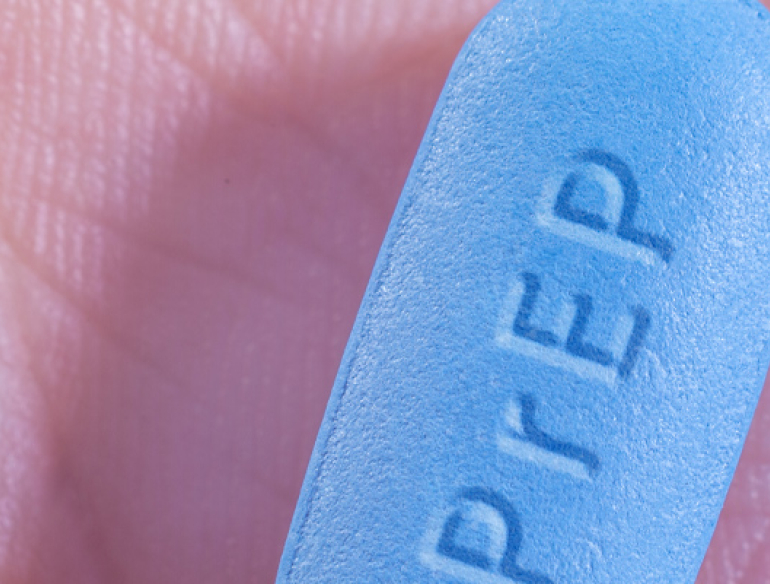Almost half of gay and bisexual men (GBM) who were using PrEP have stopped using it during the COVID-19 pandemic, according to new research from the Kirby Institute at UNSW Sydney published today in the Journal of Acquired Immune Deficiency Syndromes (JAIDS).
The study, led by Kirby Institute’s Dr Mohamed A. Hammoud and Associate Professor Garrett Prestage, collected data from 847 gay and bisexual men through an online survey during April 2020. It raises the concern that HIV transmissions may increase in the short term if men do not recommence PrEP, particularly as physical distancing measures may be reduced and pre-pandemic patterns of sexual activity resume.
The researchers say the declines in PrEP use can be attributed to COVID-19 physical distancing restrictions, leading to a reduction in sexual encounters and perceived lower risk of HIV infection. “Since 2014, we've seen a steady increase in PrEP use among gay and bisexual men in Australia. The impact of COVID-19 restrictions has dramatically impacted this upward trajectory,” says Dr Hammoud, who is the paper’s lead author. “Many men are likely making informed decisions about when to use or not use PrEP. While this research also shows us that casual sex has decreased since COVID-19, condomless sex with casual partners is still the primary risk for HIV among gay men if it isn’t protected by PrEP or HIV treatments.”
The latest monitoring data on PrEP uptake in Australia is showing PrEP uptake since COVID-19 has also reduced. Prior to COVID-19, since 2016, gay and bisexual men have embraced this new prevention tool and taken up PrEP in high numbers, which likely played a role in recent national declines in HIV transmission.
Community health leaders say gay and bisexual men were listening to public health orders at the onset of the pandemic and took responsible steps to protect themselves and each other, as they have well done in the past. But most men who stopped using PrEP during COVID-19 restrictions had no previous experience of stopping then restarting PrEP – so community health leaders say information and targeted messaging about recommencement of PrEP will be critical.
“With restrictions easing, it’s vital that men resume PrEP in a way that works for them – whether that’s returning to a daily regimen or on-demand. If they have questions about these regimens they should talk to their PrEP prescriber. We urge men in our communities to continue using HIV prevention strategies and to get tested regularly,” says Nicolas Parkhill, CEO of LGBTIQ community health organisation ACON.
Darryl O’Donnell, CEO of AFAO, the national peak body of HIV/AIDS organisations, agrees: “As this data shows, COVID-19 has seriously disrupted normal patterns of sexual behaviour. But it’s vitally important that the community HIV response is funded to communicate with gay and bisexual men about safely suspending and resuming PrEP. Australia’s success in containing COVID-19 must not be at the expense of containing epidemics such as HIV.”
Simon Ruth, CEO of Victorian LGBTIQ community health organisation Thorne Harbour Health, says: “Our priority now is to ensure men who took breaks from PrEP fully understand how to recommence prior to potential HIV exposure. Without this research we may have missed this valuable insight.”
Changes in restrictions can present new opportunities to promote and educate about different methods of PrEP use, including intermittent usage associated with intermittent sexual encounters. Associate Professor Prestage, the paper’s senior author, is confident that gay and bisexual men will continue to take an active role in the health of themselves and their communities and will respond to changing health threats as they have in the past.
“Gay communities have always come together to find ways to protect themselves and each other,” he says. “Regardless of the sexual setting, or frequency of sexual contact, HIV prevention strategies need to be accessible. We are fortunate that we have the tools to lessen the health impact, and to reduce the possibilities for renewed infection rates. With appropriate resources, gay men will be able to continue to keep HIV infections low.”
About the Flux Study
Flux is a longstanding and established cohort study of 3,200 gay and bisexual men since 2014. It is uniquely placed to monitor trends in sexual and other risk behaviours among gay and bisexual men prior to and throughout the COVID-19 pandemic, and, potentially, during the period after its most significant impacts.
Contact
Estelle Jones, Communications Officer, Kirby Institute
Phone
+61 2 9385 9987
